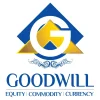Open Demat Account in 10 Minutes
Join 1 Millions customers who choose us
What are the benefits of Demat Account?
Lower risk of document loss: In physical bonds and shares, it can be easy to misplace or even lose documents in the event of a disaster that requires you to relocate. Through storing your stocks digitally, you can keep a permanent record for the sake of security. This is far more beneficial than opting for physical formats.
To prevent fraud: A paperless Demat account can be especially useful. With an electronic record of all the details and data, you can be confident that the shares or bonds held in your Demat account are legitimate and secure. This eliminates any risk of forgery or incorrect information associated with physical share certificates.
Loan Availability: Your Demat account affords you the opportunity to access various bank loans. By utilizing the securities stored in your Demat account as a security deposit, you can access these loan options from your banking institution. The securities act as collateral and guarantee you access to the funds.
Cost Effective: Opening a Demat account online has many financial advantages. The use of a Demat account offers more pocket-friendly features and benefits to the investors. By eliminating physical securities, investors don’t have to pay customs duties or other handling costs, making it an optimal choice for reducing costs. In essence, Demat accounts pave a way for more cost-effective trading.
Time Efficiency: With a Demat account, buying and selling shares can be done quickly and effortlessly, which is not the case with physical share transfers. This allows for greater liquidity of securities since transactions are processed in no time given that all holdings are dematerialized. Thereby providing you with the fasted ways to buy and sell.
No TDS on Demat Securities: To avoid Tax Deduction at Source (TDS), the Central Board of Direct Taxes (CBDT) has provided an exemption when making payments from a Demat account. Interest accrued on bonds and securities also remains safe from TDS as long as they are kept in the Demat format, which need to be listed with NSE and BSE. Therefore, it is important to save securities in the Demat mode to exempt oneself from TDS.
How to open a Demat account?
- Opening a Demat& Trading account has become a simplified process due to digitization. Choosing a SEBI registered stockbroker and Depository Participant with NSDL and CDSL are necessary first steps in the process of opening a Demat account. Here are the steps to open a Demat account:
Visit the Demat Account Opening Form. For those looking to open a Demat account, the first step is to visit the Demat Account Opening Form. Once there, click ‘open an account’ and begin your application form. Make sure you have your mobile number and email ID ready before you start.
Input your PAN and other pertinent information, such as address and bank details, onto the platform. This is an essential process in order to link your Demat and trading accounts. Additionally, a valid PAN is required for successful execution of this step.
Submit scanned documents in order to move forward with the application process, you need to provide scanned documents for KYC authentication. These include proof of income, bank details, and a photograph. Please ensure that the documents are clear and accurate before submitting them.
Complete the In-Person Verification process (IVP). During this procedure, record yourself for 30 seconds to verify the legitimacy of your documents. Keep your PAN card and other documents near you while recording so that all information can be read aloud clearly.
You must e-sign the form using your Aadhaar linked mobile number. Utilize a signature on a white background and upload it as an e-signature wherever required in conjunction with your associated mobile number.
Review & Submit the application
To open a Demat account, the following documents are required:
PAN Card: The picture and signature must be clearly visible.
Photo: A passport size photograph is needed.
eSignature: Signature on white background paper
Address Proof: Voter ID, Driving License, Aadhar Card, Passport, Utility Bill (not more than 3 months old) or last 3 months bank statement is acceptable
Bank Proof: Cancelled cheque, passbook, bank statement of 6 months with clear visibility of IFSC code and bank a/c number
Income Proof (if trading in Futures & Options): Bank statements for 6 months, Net-worth certificate, 3-months’ salary slips, ITR statement or Demat holding statement along with Demat Account opening fees and charges are accepted as proof of income.
FAQs
LOWEST BROKERAGE IN THE INDUSTRY,NO HIDDEN CHARGES
Trading Terminal at free of cost (NEST, Web Trading, Mobile Trading)
Zero Deposit for Account Opening
Online Fund Transfer & Payment on the same day
Free Application Form
Free Training Form
Free Online Trading Software
Free 24*7 Backoffice Support
Free Intraday Tips on Mobile Phone
Free Live Calls and Follow Ups
Low Brokerage and High Exposure
No Hidden Fees,No AMC and No Hidden Charges
Advantages
Online/NEFT transfer for withdrawals and deposit
Withdrawls will be credited on Same Day
Lowest Brokerage to Earn Maximum Benefits
Electronic Contract note by Email

Online/NEFT transfer for withdrawals and deposit
Withdrawls will be credited on Same Day
Lowest Brokerage to Earn Maximum Benefits
Electronic Contract note by Email

